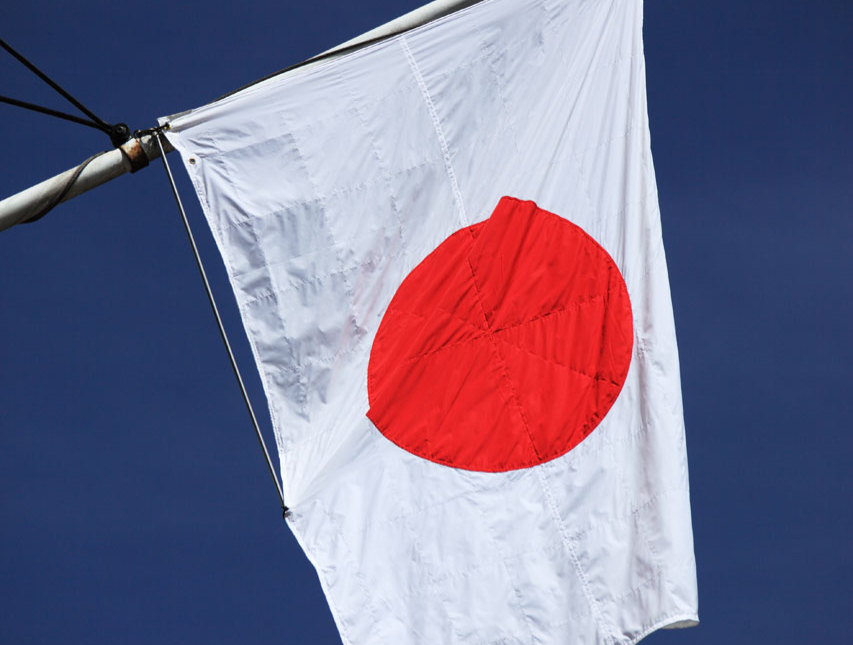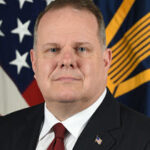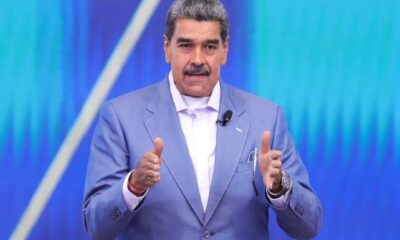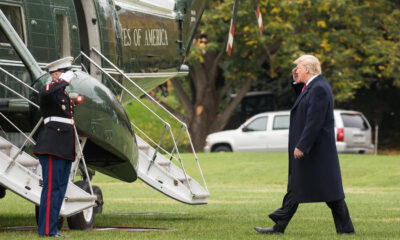Civilization
No Better Friend Than Japan Despite Political Distractions

Soon, President Biden will meet with seven of our most important allies and partners at the upcoming G7 summit in Italy, June 13-15. This meeting comes at a pivotal moment: wars in Ukraine and in the Middle East show little signs of stopping, China is becoming more aggressive in the South China Sea, the Taiwan Strait and beyond, and the global economy is still suffering from slow growth and inflation. Having just returned from Europe, I encountered a palpable sense of anxiety about America’s current leadership in the world given the widespread failure of deterrence and continued economic malaise. During trying times like these, the United States needs to be seen as standing with like-minded allies to confront common challenges, not just as a leader, but also as an equal partner.
Japan as friend of America
Japan, as the only Asian G7 member, will attend the G-7 summit in Italy’s Puglia region. In addition to the multilateral discussions, it can be expected that President Biden will have a bilateral meeting with Japan’s Prime Minister Kishida Fumio.
This will not be the first time these two leaders have met this year. On April 10th, Prime Minister Kishida visited Washington for a rare state visit with President Biden, a testament to the continued significance of our alliance. The meeting concluded with the launch of a new Forum on Defense Industrial Cooperation, Acquisition, and Sustainment led by the Pentagon and Japan’s Ministry of Defense. Shortly after in May, this new initiative produced an agreement between the two governments to collaborate on the Glide Phase Interceptor Cooperative Development. This was an unmistakable sign of our collective resolve to pursue regional deterrence and missile defense together.
Steps that Japan has taken
Moreover, the Government of Japan (GoJ) has taken numerous steps recently to align its foreign and defense policies with the U.S., arguably more than any other country:
- Japan has committed to doubling its defense budget to 2% of its GDP, which equates to approximately $100 billion annually to bolster Self-Defense Forces and enhance its capabilities in line with U.S. strategic interests.
- In response to Russia’s aggression against Ukraine, Japan has imposed sanctions in coordination with the U.S. demonstrating its commitment to upholding international law and security. Since the beginning of Russia’s invasion of Ukraine in 2022, Japan has committed nearly $12 billion in aid to Ukraine.
- Japan’s Official Development Assistance (ODA) amounted to $21 billion in 2022, focusing on global health, climate change, and sustainable development, aligning with U.S. goals to promote global stability and development.
- Japan’s Free and Open Indo-Pacific (FOIP) strategy aligns with U.S. efforts to ensure regional stability and counter China’s influence, reflecting shared strategic objectives.
Political posturing
General Mark Milley, the then Chairman of the Joint Chiefs of Staff, lauded this shift from GoJ, saying that “having a powerful Japan, a militarily capable Japan that has a close alliance with the United States and other countries, will go a long way to deterring war” with China. And in the context of China’s increasingly belligerent behaviors, like its recent military exercises meant to intimidate Taiwan, this should be a welcome relief for Washington who knows it cannot do everything on its own to deal with Beijing.
Despite the unprecedented forward-leaning actions taken by the GoJ to align with the U.S., often at the expense of domestic opposition to increased defense spending, there are distractions that are impacting the alliance emanating from Washington, DC.
During a recent campaign fundraiser, President Biden likened Japan to Russia and China for being “xenophobic,” a comment that Japan justifiably called “unfortunate.” On the heels of a state visit and during an era of Great Power Competition, one can only wonder how POTUS could compare Japan with the countries of a new arc of authoritarianism.
A critical alliance
Political posturing in the U.S. during an election year also distracts from our critical alliance. During a campaign event, the president opposed the proposed merger between Nippon Steel and U.S. Steel by saying that U.S. Steel must “remain an American steel company that is domestically owned and operated.” On the same day as Kishida’s arrival for the state visit, the Federal Trade Commission announced they opened an investigation into the proposed acquisition. All this while the Congress was debating the future of TikTok in the United States, an unfortunate while hopefully unintentional parallel.
It is important for Washington to strike the proper balance of international relations and domestic politicking. While much has been accomplished with Japan, we cannot take the relationship for granted at a time when we need more help than ever to counter China. Distractions like the President’s rhetorical gaffes or politicizing commercial deals only serve our adversaries’ objectives.
As Secretary Austin just said at the Shangri-La conclave, America’s “greatest global strategic advantage” is our alliances. We should not put that at risk for domestic political gain.
This article was originally published by RealClearDefense and made available via RealClearWire.
Heino Klinck was the Deputy Assistant Secretary of Defense for East Asia, 2019-21.
-

 Accountability3 days ago
Accountability3 days agoWaste of the Day: Principal Bought Lobster with School Funds
-

 Executive1 day ago
Executive1 day agoHow Relaxed COVID-Era Rules Fueled Minnesota’s Biggest Scam
-

 Civilization9 hours ago
Civilization9 hours agoWhy Europe Shouldn’t Be Upset at Trump’s Venezuelan Actions
-

 Constitution2 days ago
Constitution2 days agoTrump, Canada, and the Constitutional Problem Beneath the Bridge
-

 Civilization1 day ago
Civilization1 day agoThe End of Purple States and Competitive Districts
-

 Christianity Today8 hours ago
Christianity Today8 hours agoSurprising Revival: Gen Z Men & Highly Educated Lead Return to Religion
-

 Civilization5 days ago
Civilization5 days agoThe devil is in the details
-

 Executive21 hours ago
Executive21 hours agoWaste of the Day: Can You Hear Me Now?














